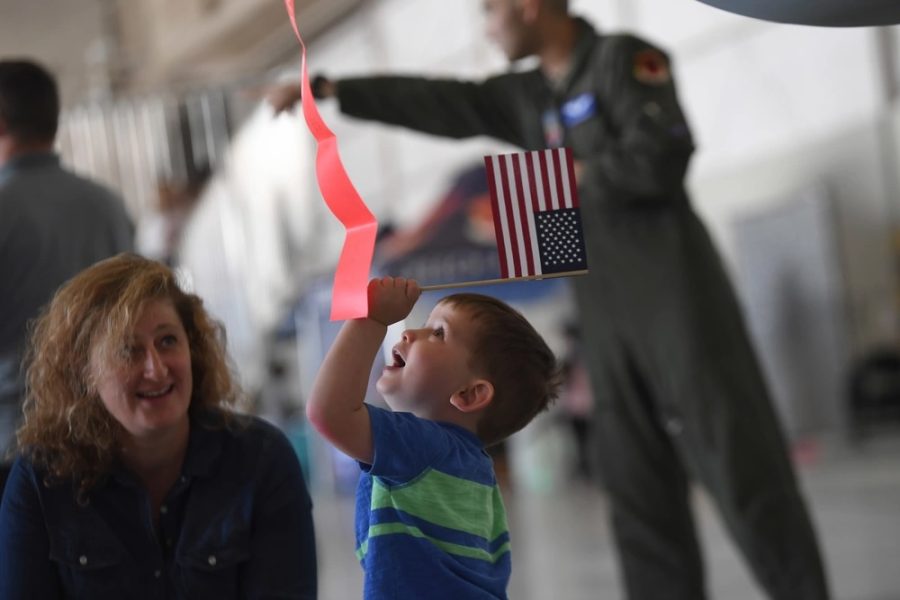A new bipartisan law introduced April 18 promises to help ease the nationwide military child care shortage by allowing the Defense Department to create 12 partnerships with private and public child care centers on or near military bases. The hope is that those first-of-its-kind partnerships, along with new incentives and authorities to recruit and retain child care providers, will drive up capacity at those locations, where many families are stuck with monthslong waiting lists.
Introduced by Sens. Jeanne Shaheen (D-N.H.) and Joni Ernst (R-Iowa), the Expanding Child Care for Military Families Act comes a week after the House Armed Services Committee released a report investigating military quality-of-life issues, including child care.
“[A]ccessibility due to long waitlists, particularly for infant care, persists as a significant challenge and source of frustration for service members and their families,” the report said.
Both the military and civilian workforce suffer from a nationwide shortage of providers, which is felt even more acutely at remote military installations. The report cited wait times as long as six to seven months. To make things more difficult, military families move frequently and often work odd hours when most child care centers are closed. The Defense Department received funds to build 17 new child development centers (CDCs) since 2019, but many of those are not yet complete.
To hire new workers, the Defense Department is offering wages comparable to civilian employers, but the problem is those are still often not high enough, and many child care workers switch to retail industries, the report found. Still, some incentives are having an effect: the Air Force reported last year that direct-care staffing levels increased from 72 to 77 percent from 2022 to 2023 after the branch began providing complete child care fee waivers for the first child of staff at military CDCs, plus a 25 percent discount for additional children.
The Quality of Life Panel Report called for making those benefits universal across the services and cover up to 100 percent for additional children. It also called for paying military child care workers more; for quarterly briefs from the Defense Department on how it is addressing staffing shortages; and for a study on whether hiring authorities for child care workers can be improved.
The new bill seems to address several of those issues. Establishing partnerships with eligible providers should increase capacity, improve child care workforce development, and recruit and retain more providers. To sweeten the pot, the bill also calls for the military to provide certification and training opportunities at participating child care centers.
That kind of support could make a difference for Cora Hoppe, director of the nonprofit, New Hampshire-based Rochester Child Care Center. Hoppe told NBC News she had to lay off a quarter of her staff due to a tight budget and high operating costs.
“There’s no wiggle room. There’s absolutely none,” she said. “The DOD’s backing would be huge, because then it would allow us to build our capacity.”
Beyond local providers, the bill would also authorize the Defense Department to partner with national service agencies such as AmeriCorps to place volunteers at child care centers. It would also encourage the department to recruit and offer training for eligible military spouses.
Should the bill be passed, the pilot program would start no later than Jan. 1, 2026. After that, the Pentagon would have to report on the status of the program every year until the pilot ends on Dec. 31 2030—or longer if the pilot is extended.
“As a mom and a new grandma, I know it takes a village to raise a child and that our military members need high-quality, affordable child care for their young ones,” Ernst said in a statement. “By boosting training and recruitment efforts, this bipartisan bill will ensure military kids are safe and loved while their parents diligently train and prepare to protect our nation.”
